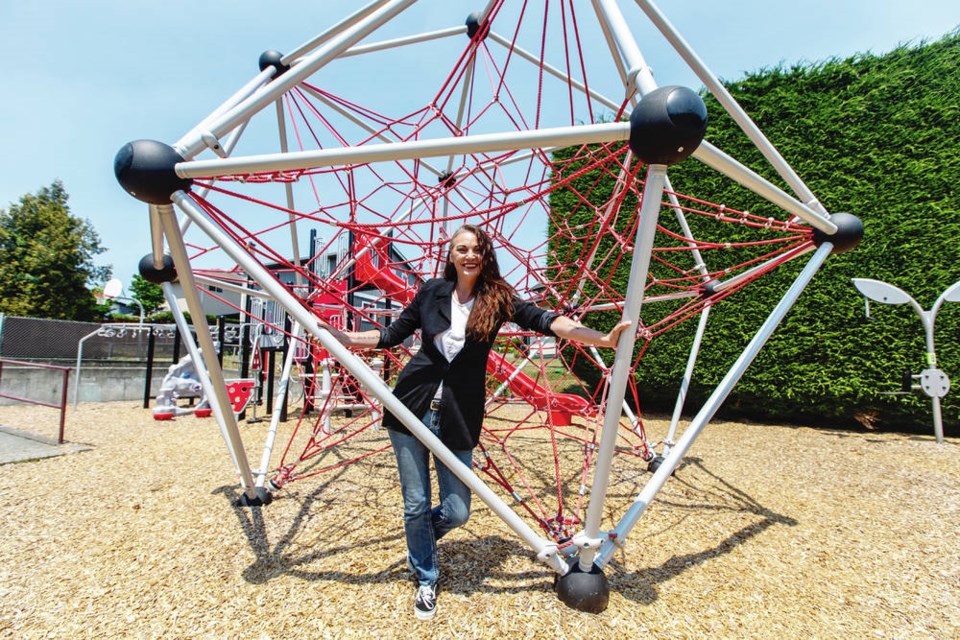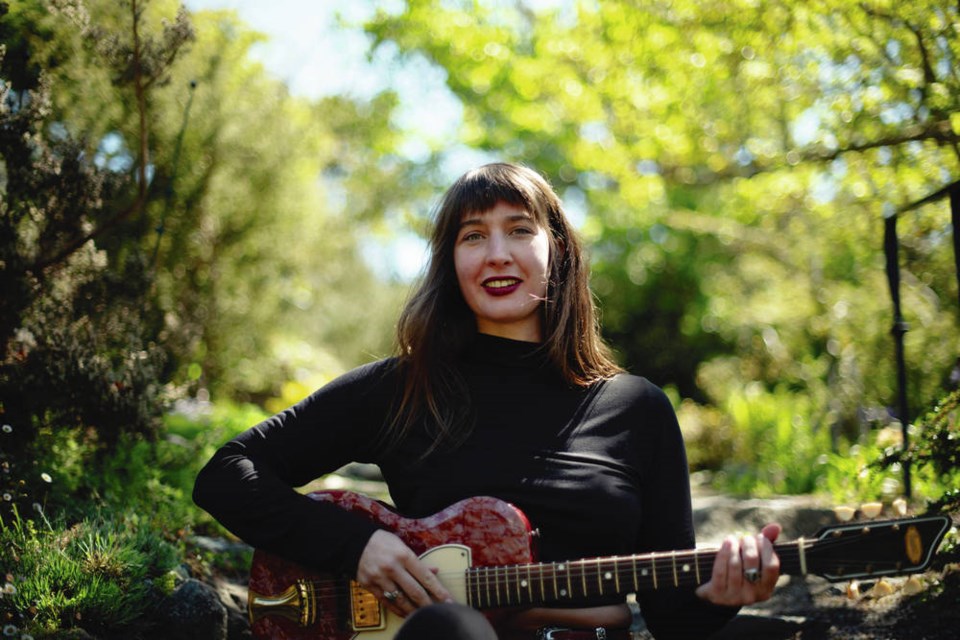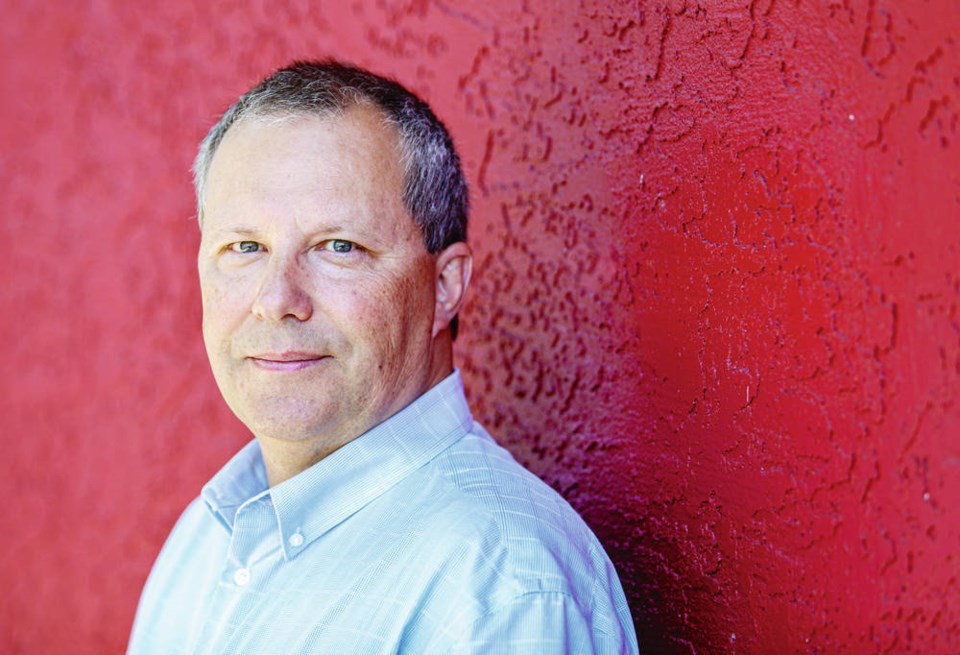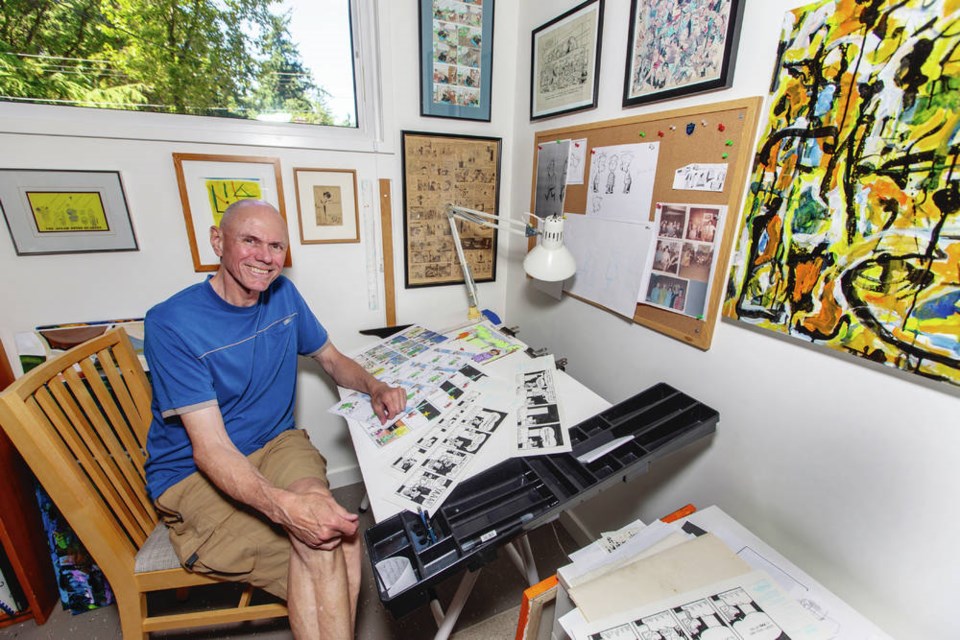Disruptive, economically and personally devastating, inconvenient and in some cases life-altering and deadly: There is no question the COVID-19 pandemic has taken a massive toll.
But it has also spurred global collaboration to produce vaccines, forced people, companies and countries to innovate and change the way they operate, and fuelled discovery, all the while kindling in many areas a stronger sense of community.
For some, it has also offered opportunity.
There have been economic opportunities for those quick to pivot to take advantage of slow and broken supply chains, and limited opportunity to take advantage of slumping markets to get in at low prices on blue-chip stocks.
But the pandemic has also offered an opportunity for individuals to look inside themselves.
As work and school slowed or shifted to the home front, and travel and gatherings were restricted, people suddenly had time and space to consider their place in the world and evaluate their own priorities.
In some cases, that introspection resulted in individuals taking on new challenges, considering new career directions and setting new goals.
Frederick Grouzet, associate professor of psychology at the University of Victoria, says reactions to traumatic events like the pandemic range broadly, from wanting things to return to “normal” to openness to embracing significant change.
Grouzet said there is plenty of evidence that traumatic events can lead to personal growth, noting things like near-death experiences often result in people establishing strong resolutions and changing their priorities in life and focus.
“There’s often more focus on family and personal health,” he said. “People tend to go back to basics, relationships and family and taking care of their whole selves.”
Phil Ohl, a professional management coach and founder of the Leader’s Edge, which works with individuals and companies to unlock performance potential, said people tend to get into a comfortable rhythm and are less likely to take stock of their lives until they are shaken out of it.
“It can be uncomfortable to look at ourselves carefully,” he said. “But this type of event tends to rattle us out of the sleepwalking and our normal way of operating. It provides the impetus to take stock of what we’re doing.
“Particularly with COVID, we had to slow down immensely, which gave us time to actually reflect on our lives and ask ourselves some of the tough questions that we typically don’t ask.”
Ohl said he’s seen changes in many people as a result of the pandemic, ranging from being more present, ensuring they are doing more than just showing up and really interacting with people, to valuing family time more than just career and company goals.
“It is a wake-up call,” Grouzet agreed. “Your life is going on and you may think things are going well, but you’re actually stressed.”
He said having the time to think and reflect tends to drive people to re-evaluate their choices, and often motivates them to change their behaviour to reflect what matters most to them.
How lasting those changes may be depends on what people do with their new goals and intentions.
“To what extent you translate those intentions into actions will dictate how long it lasts and if it sticks,” Grouzet said. “It’s difficult to know why it may last for some and not for others, maybe because actions that follow the events are what matter.”

Pauline Jackson
Pauline Jackson never thought, in a million years, she’d be where she is now.
When the pandemic was declared last March, Jackson, now 55, was in her groove, living in Vancouver and managing large live events for the MRG Group, which has venues across sa���ʴ�ý.
She was working long hours doing a job she had loved for a decade — creating spectacles where people celebrate.
It all came crashing to a halt when the pandemic was declared. “We were the first [sector] to close and the last to reopen,” she said.
With no work, she started burning through savings and decided if she had to start over, she would return to the Island, where she was among friends and family. She eventually landed a new job selling playground equipment and working with clients to create play spaces for Victoria-based Green Roots Play Equipment.
Although she had a background in sales, she says the job was “completely out of my realm.”
She was making half what she had been earning in Vancouver, but she quickly realized she now had something that she didn’t have before: time. Time for herself, time to breathe, time for her pets and time for family.
“I was making less than half but I was twice as happy,” she said, noting she didn’t realize how stressed she was until she had time to think.
Now she has no plans to return to that previous life. “I’m in a very happy place. I was off for a year and I really reflected on what was important to me — spend time with family and friends and take off with my dogs to places I’ve never been before,” she said. “And I’m building things that will be long-standing in the community.
“I’m taking my granddaughter to these parks we’ve built.”
Jackson says she has never been quite as content as she is now, and she credits the pandemic.
“It’s been a blessing in disguise,” she said. “It’s absolutely been a catalyst for positive change. Had you asked me in June of last year, I may not have been able to talk, I was so depressed and stressed about this, but now it’s a different story.”
Brian Tate
Brian Tate thought the pandemic might have robbed him of his voice.
The 67-year-old, who has worked as a conductor, composer and arranger in choral music for decades, found himself without an outlet for his creative work as the pandemic shut down entertainment venues and even killed the idea of getting groups together to sing.
But the pandemic offered him an alternative — finding his voice in a new kind of art.
“My second love has always been cartooning and illustration — it was just something I did in my spare time,” he said.
With more of that spare time, he found he could dive into the animated world and started doing editorial-style cartoons that he would post on social media. He also started an autobiographical comic strip he intends to publish as a graphic novel.
It helped him express himself during the darkest days over the last year and a half. “I felt I was commenting and making a difference and giving people a bit of lift, commenting on the situation we were all in.
“I’ve got into this career that I never thought I’d be able to realize.”
Tate moved to Victoria two and a half years ago from Vancouver, a move he describes as something of a reset in his music career, so he was already in the mindset of making changes.
“But it was nothing like what happened,” he said. Because he was just starting to establish a new community choir here, he had no choice but to stop doing music for a while.
Tate said he was ready for that, but will get back into it as things start to open up again.
He hopes to establish a hybrid work model that allows him to indulge both of his artistic passions.
Cartooning, he said, was a saving grace that allowed him to reserve his sanity and bring joy to those who followed his work. “It’s been a real silver lining of the pandemic.”

Sarah Osborne
Sarah Osborne’s music career was just starting to pick up momentum when the pandemic hit. In the 18 months since, she has had to toss plans out the window, put her immediate goals on hold and learn to deal with the silence.
“Sometimes chaos and misery can be a learning experience and really beneficial,” she said with a laugh.
She also learned that the fingers she relies on to play guitar are just as much at home buried deep in the dirt.
With gigs disappearing after COVID hit, Osborne, 34, had to find new ways of making ends meet and filling her time. It led to a somewhat peripatetic existence. She moved five times last year, and eventually opted to get out of the city altogether.
She moved to Gabriola Island and ended up opening her own gardening business — Mud and Lotus Gardening. The business has grown steadily via word of mouth on the island.
“This doesn’t really feel like work, I love this,” said Osborne, who says the pandemic has shown her that she needs more alone time.
“I need and enjoy alone time, though at times there may have been too much,” she said. “But I’m finding a balance. I got a good look in the mirror and tackled a lot of self-improvement and some issues I had to face.”
She has learned to avoid burning out by taking on too much, developing the ability to say no.
“I think we all needed that reset,” she said.
She hopes to maintain that work-life balance as she starts getting back into playing music. She likes being able to go to the city and play or record, then return to Gabriola, her tiny home and the gardens.
“It’s a weird balance, playing in rock shows and then shoveling dirt.”
During the downturn, she has been taking business courses, which inspired the idea of recording and selling short albums that coincide with the seasons – the summer edition was released recently and she has just finished recording the fall one.
Osborne, whose uncle Neil is one of the founding members of legendary sa���ʴ�ý band 54-40 and whose cousin Candle boasts her own successful music career, said music and live shows have always been a part of her life and always will be.
But she has embraced the slower pace and quiet of the small island as well, noting she has felt “lifted up” and supported by Gabriola and its vibrant arts community. She said she intends to continue the gardening business even as things open up.
“I’m becoming a better person and finding myself, for lack of better words, and I needed the space and quiet to do that,” she said.

Darryl Anderson
Darryl Anderson has made a career out of solving problems as a management consultant who specializes in logistics and maritime shipping, among other things.
But the 57-year-old, who had been serving as an advisor to the board of Mercy Ships sa���ʴ�ý pre-COVID, found himself drawn into the charitable organization full-time and with both feet during the pandemic.
The organization, an international humanitarian group that uses hospital ships to deliver health-care services to some of the world’s poorest nations, was going through changes and didn’t have an executive director.
But it needed leadership in a crisis. Anderson’s volunteer work, life experience and proximity to the Victoria office made him an ideal candidate.
“I think I was the person living closest to the national office,” Anderson joked. “When COVID broke, they needed someone who could handle decisions and logistics.”
With the organization’s original ship, the Africa Mercy, having to wrap up field service early, someone had to work with Senegalese officials to release the vessel and send it to Europe, where it could be refitted.
“I’d been involved as a national advisor, but I never imagined I would be called into this line of work,” he said, noting the gig was supposed to get the organization through the pandemic, but has been extended.
“It was a job I wasn’t looking for, and that didn’t know I wanted,” he said. Now he feels he’s on a new path, as the organization has big plans for expansion.
“Our goal is to triple the size,” he said.
Mercy Ships just took delivery of its new ship, the Global Mercy, which it expects to be outfitted and staffed for service next year.
Anderson said since taking the reins, he’s been immersed in the philanthropic sector, and has been humbled by the dedication of the people around him amid a trying pandemic.
“I think the pandemic has taught us how vulnerable we all are,” he said.
Anderson said the work has been fulfilling, though he remains stunned at the change in his daily routine.
“But when you’re all-in, there is no Plan B,” said Anderson, who plans to continue the Mercy Ships work, while maintaining some longtime consulting clients.
He said the COVID experience seems to have left people more willing to act and to lend a hand.
“People were thinking they can’t solve all the world’s problems, but they can be a small part of something to help others,” he said. “It has allowed people to recalibrate. They can work on making their patch of earth, whether it’s global or local, make their patch of earth better.”
The change also came at the right time. “I’m at the stage and place where I am able to give back,” he said.
While before, “giving back” may have meant mentoring people, “now it’s immediate with the organization.
“My training is in choppy seas. I just didn’t know I would be navigating choppy seas in the charitable sector.”



